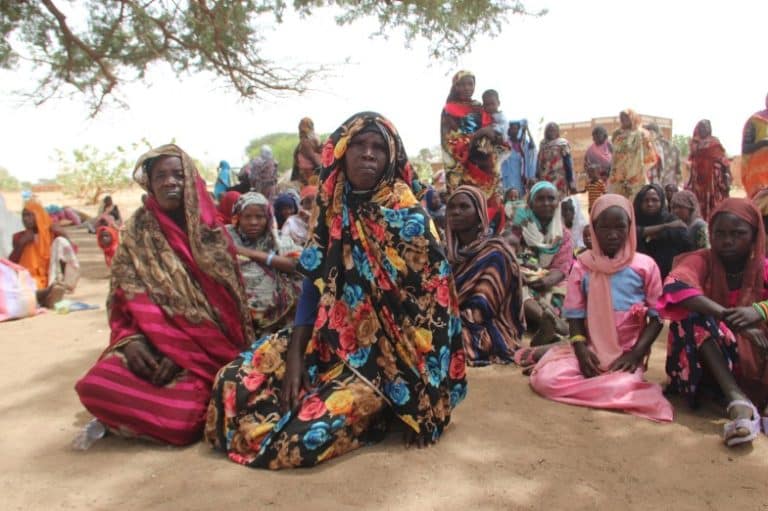
The head of the UN mission in Sudan fears that what has started as a rift between two generals is getting much closer to a full-blown civil war. Volker Perthes said during a visit on July 12th to Brussels that Africa’s stability is at stake.
Since the start of the war in Sudan, on 15 April, 2023, the toll continues to grow. “In three months, we’ve had more than two million newly displaced people in the country and over 700,000 people who have crossed the borders to neighbouring countries”, stated Volker Perthes during a press briefing.
“Sudan has become a humanitarian catastrophe again”, added the Special Representative of the United Nations Secretary General for Sudan and Head of the United Nations Integrated Transition Assistance Mission in Sudan (UNITAMS).
“Human rights violations start from murder, rape and looting wherever fighting happened, and sometimes where fighting didn’t happen, up to ethnic cleansing in West Darfur and its capital city Al-Junaynah.”
Unfortunately, there is no political solution in sight. Abdel Fattah al-Burhan and Mohammed Hamdan Daglo, two generals of the junta which came to power through a coup d’Etat on 25 October, 2021, are still determined to fight each other.
They overthrew a civilian transition government (2019-2021) formed after the downfall of Omar al-Bashir, a colonel who led the country from 1989 to 2019. Al-Bashir’s tenure ended after four months of protests and demonstrations against his rule.
The risk of a “full-blown civil war”
Volker Perthes explained that the eight countries of the African Intergovernmental Authority on Development (IGAD) recently declared: “We don’t think that any of the parties would be able to win militarily. A cessation of hostilities would allow a political process to start. We aren’t there yet”.
What has started as a rift between two generals “is about to morph into an ethnicisised ideologised conflict, bringing it much closer to a full-blown civil war,” Volker Perthes told reporters.
Ripple effect
This worst-case scenario would have many consequences. “Once the conflict is a civil war with multiple fronts and a fragmentation of the country, it’s much more difficult to stop it and it has more implications on the region. We also see the risk that neighbouring states are being dragged into the conflict.”
The geostrategic position of Sudan makes the evolution of the current conflict crucial for Africa’s stability. “Sudan is the third largest country in Africa, and its fragmentation would not be just an implosion, but an explosion affecting many neighbouring countries, many of them having their own problems with transitions”.
“The international community should not stand by and just watch”
Volker Perthes is meeting the European External Action Service of the European Union (EU) in Brussels and the EU’s Political and Security Committee (PSC) – meetings he has held on an annual basis since the creation of UNITAMS in 2020.
“While we don’t see an immediate end of the war now, the message for Europeans and others is that of course, the international community should not stand by and just watch. It is important, and sometimes more important than people realise to call upon the parties to cease the fire and to go for cessation of hostilities immediately”.
Even if the transition that was at the core of UNITAMS’ mandate is compromised, the UN diplomat said that Europe has been “very supportive” of this process. With Europe being a major humanitarian donor, “it is important to keep it briefed because the needs in Sudan are enormous”.
Foreseeing peace and reconstruction
“We need to step up humanitarian aid both inside the country as well as in the neighbouring countries such as Chad, Egypt, South Sudan and Ethiopia”, explained Volker Perthes. Refugees from Sudan are placing an extra burden on “generous” host countries like Chad, which already “struggles to make ends meet”, continued the UN diplomat.
In the United Nations Representative’s view, Europe will certainly play a role in peace talks and future reconstruction efforts. “It is also important for international actors to make clear that with all the crimes and human rights violations that have happened in the past three months, there must be accountability”.
The UN mission is still in Sudan
Created in June 2020 to support the democratic transition in Sudan, UNITAMS had since been renewed each year. At the end of April 2023, the international staff of the United Nations were evacuated from Sudan and on 2 June, the Security Council extended UNITAMS for six months. Volker Perthes, who was declared “persona non grata” by the Sudanese authorities on 8 June, is now working from Nairobi, Kenya.
“The Secretary-General has been very clear that declaring UN officials persona non grata has no legal basis”, underlined Volker Perthes during his press briefing. “UNITAMS is still in Sudan. My deputy, some international staff and the UN agencies are in Port-Sudan, while our national staff is still working in Sudan”. The mission engages in human rights reporting, regional diplomacy and is maintaining a chair of the Ceasefire Committee for Darfur. It is also working with civil society, “encouraging political and civilian actors to start conversations”.
Useful links:
UNRIC Library Backgrounder: Sudan/Darfur
Statement of ICC Prosecutor, Karim A. A. Kahn, upon conclusion of his visit to Khartum and Darfur: “Together we must ensure that our initial steps toward justice are not a false dawn”, August 29, 2022.